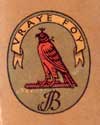Wed 26 Apr 2006
Cost of (anti-malarial) drugs – makes you think
Posted by boz under General , ScienceComments Off on Cost of (anti-malarial) drugs – makes you think
Some 300-500 million people suffer from malaria every year, and over a million die from it. The most effective drug for treatment, artemisinin, is derived from a species of Chinese wormwood. The process of extracting and purifying artemisinin from this plant is costly, so those that need it most can’t afford a treatment course. Also, the supply is very limited so even if they could afford it, there isn’t enough of the drug to go around.
The April 13, 2006 issue of Nature has a paper by researchers at UC Berkeley reporting they have tweaked yeast into creating artemisinic acid, a precursor of artemisinin. Creating artemisinin from the precursor acid is relatively straight-forward. So, scaling up this process may well result in reducing the cost of the drug by 10-fold, bringing a course of treatment within the reach of those who need it.
The current cost of a course of treatment is US $2.40.
That’s less than the cost of a cup of coffee at Starbucks.
